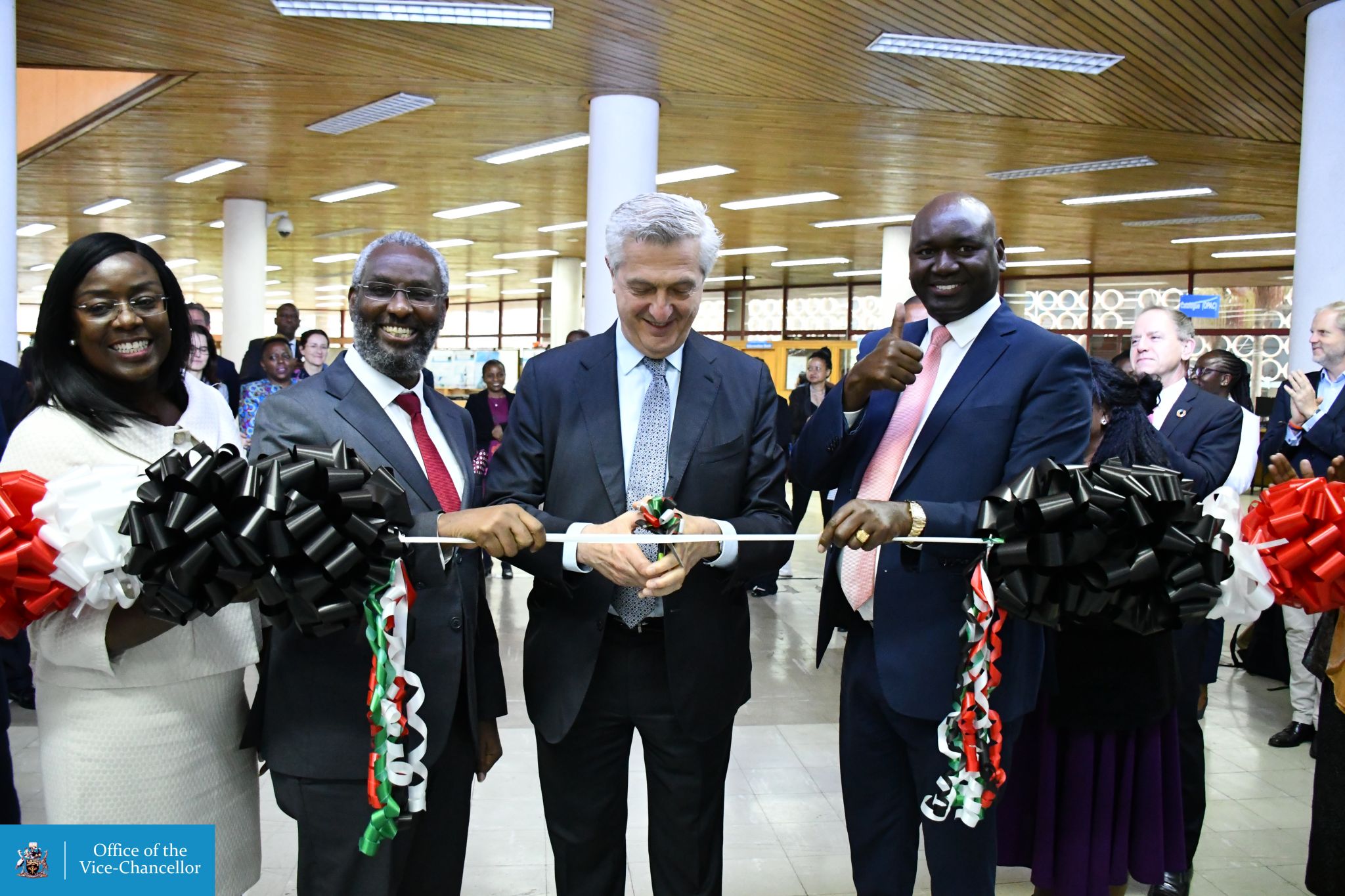Launch of the Refugee Resource Center at the University of Nairobi: A Collaborative Step Towards Sustainable Humanitarian Responses
The University of Nairobi had the honor of hosting the UN High Commissioner for Refugees, Filippo Grandi, at the Chandaria Auditorium for an enriching dialogue on advancing sustainable humanitarian responses to refugee crises through accelerated development. Kenya's proactive role in this endeavor was highlighted and commended during this significant event.
Keynote Address by Filippo Grandi
Filippo Grandi's address emphasized the urgent need for inclusive solutions to forced displacement and irregular migration, equating their global impact to that of climate change. He underscored that sustainable solutions must benefit all stakeholders, including refugees, host communities, and the countries of origin. Grandi expressed gratitude to Kenya's Principal Secretary for Immigration, Julius Bitok, and the Vice-Chancellor of the University of Nairobi, Prof. Stephen Kiama, for organizing such an impactful event. He lauded Kenya for its ongoing support in hosting refugees, recognizing the country as a leading example in this critical global issue.
Inauguration of the Refugee Resource Center
A pivotal highlight of the visit was the official commissioning of the Refugee Resource Center (RRC) at the University of Nairobi. This center, fully funded by the UNHCR through a Collaborative Agreement, aims to enhance research, dialogue, and solutions concerning forced displacement.
Commitments by the University of Nairobi
Vice-Chancellor Prof. Stephen Kiama outlined the University’s commitments to achieving the objectives of the Collaborative Agreement:
- Facility Provision: Dedicated space and facilities within the university premises for the Refugee Resource Center.
- Resource Coordination: Assignment of a dedicated resource person to lead and coordinate the Refugee Resource Center’s activities in collaboration with the UNHCR.
- Research Facilitation: Access facilitation for selecting research materials, advising on research topics, and providing aggregated micro-data for academics, students, and practitioners.
- Promotion of Participation: Encouraging participation from both internal and external academics and professionals in lectures and workshops organized by the Refugee Resource Center.
- Activity Monitoring: Monitoring and overseeing RRC activities in collaboration with the UNHCR.
UNHCR's Role and Support
To support the RRC’s mission, the UNHCR has committed to:
- Expert Involvement: Inviting experts on forced displacement from within the UNHCR and other institutions.
- Capacity Building: Providing technical advice to enhance the RRC’s repository of resources.
- Research Support: Assisting in accessing necessary microdata and research works.
- Thesis Awards: Collaborating in identifying thesis award recipients.
- Thematic Priorities: Coordinating the identification of thematic priorities for annual dialogues.
- Event Support: Supporting the organization of events, seminars, and interdisciplinary learning activities on forced displacement.
- Resource Mobilization: Assisting in the identification and mobilization of technical and financial resources to ensure the center's success.
Looking Forward
The University of Nairobi is proud to partner with the UNHCR in this significant initiative. The establishment of the Refugee Resource Center marks a strategic step forward in addressing forced displacement through informed research and inclusive dialogue. We look forward to the impactful contributions this center will make towards sustainable humanitarian responses in Kenya and beyond.


